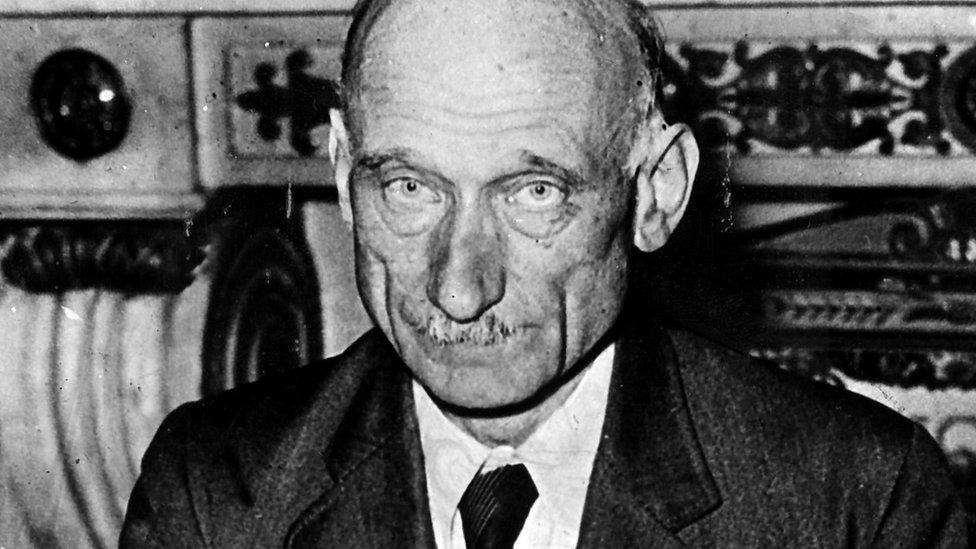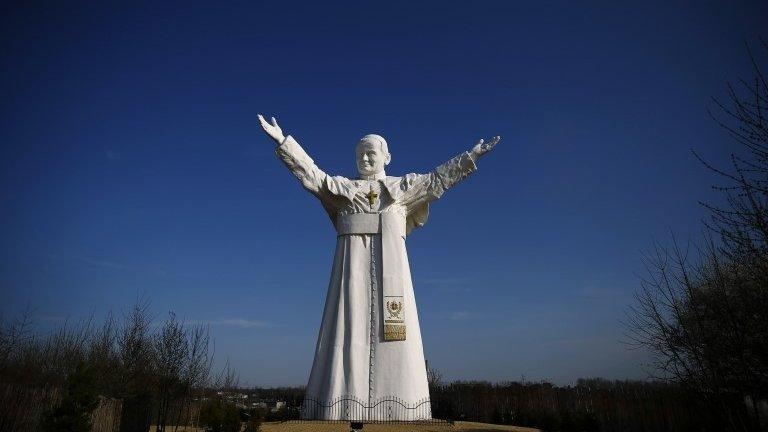Robert Schuman: Pope puts father of modern Europe on sainthood path
- Published

Schuman, seen here in 1947, helped found the group that was the predecessor of the European Union
Pope Francis has put French statesman Robert Schuman, one of the founders of modern Europe, on the path to sainthood in the Roman Catholic Church.
The Vatican said the Pope approved a decree recognising Schuman's "heroic virtues", an early stage of the long process that can lead to canonisation.
One miracle would have to be attributed to Schuman for him to be beatified and then another for him to become a saint.
Schuman, who died in 1963, was key in creating today's European institutions.
Several popes have praised the role Schuman, who was a devout Catholic, played in trying to break the cycle of wars in Europe. The decree means that he now has the title of "venerable" in the Church.
Born in Luxembourg in 1886 and naturalised as a French citizen, Schuman briefly supported Marshal Pétain, who would be sentenced to death for being a Nazi collaborator in World War Two. After the German occupation of France in 1940, Schuman was arrested by the Gestapo but managed to escape a year later, and went on to live in hiding until the end of the war.
In the post-war period, Schuman served as France's prime minister and foreign minister. In 1950, he proposed that coal and steel resources should be pooled between European countries as a way to avoid future conflicts. The plan became known as the Schuman Declaration, and the day it was announced, 9 May, is celebrated as Europe Day.
Six founding members - France, West Germany, Italy, Belgium, Luxembourg and the Netherlands - signed the Treaty of Paris, creating the European Coal and Steel Community. It evolved in 1957 to become the European Economic Community and finally the European Union, in 1993.
He also played a key role in founding Nato, the North Atlantic Treaty Organization, in 1949, and served as the first president of the predecessor to the current European Parliament, in 1958. When he left office due to poor health he was given the title of Father of Europe.
Last year, on the 70th anniversary of the Schuman Declaration, Pope Francis said it had led to "the long period of stability and peace from which we benefit today".
The France-based Institut Saint Benoît has been promoting sainthood for Schuman for decades, Reuters news agency reports.
The next step in the sainthood path of the Catholic Church is beatification. To reach that stage a miracle needs to be attributed to prayers made to the individual after their death. Claims need to be verified by evidence before they are accepted as miracles.
A second miracle normally needs to be attributed to prayers made to the candidate after they have been beatified for the process to move to canonisation, the final step in declaring a deceased person a saint.

You might also be interested in:
A computer programmer’s beatification could lead to the world’s first millennial saint.
- Published27 April 2014
